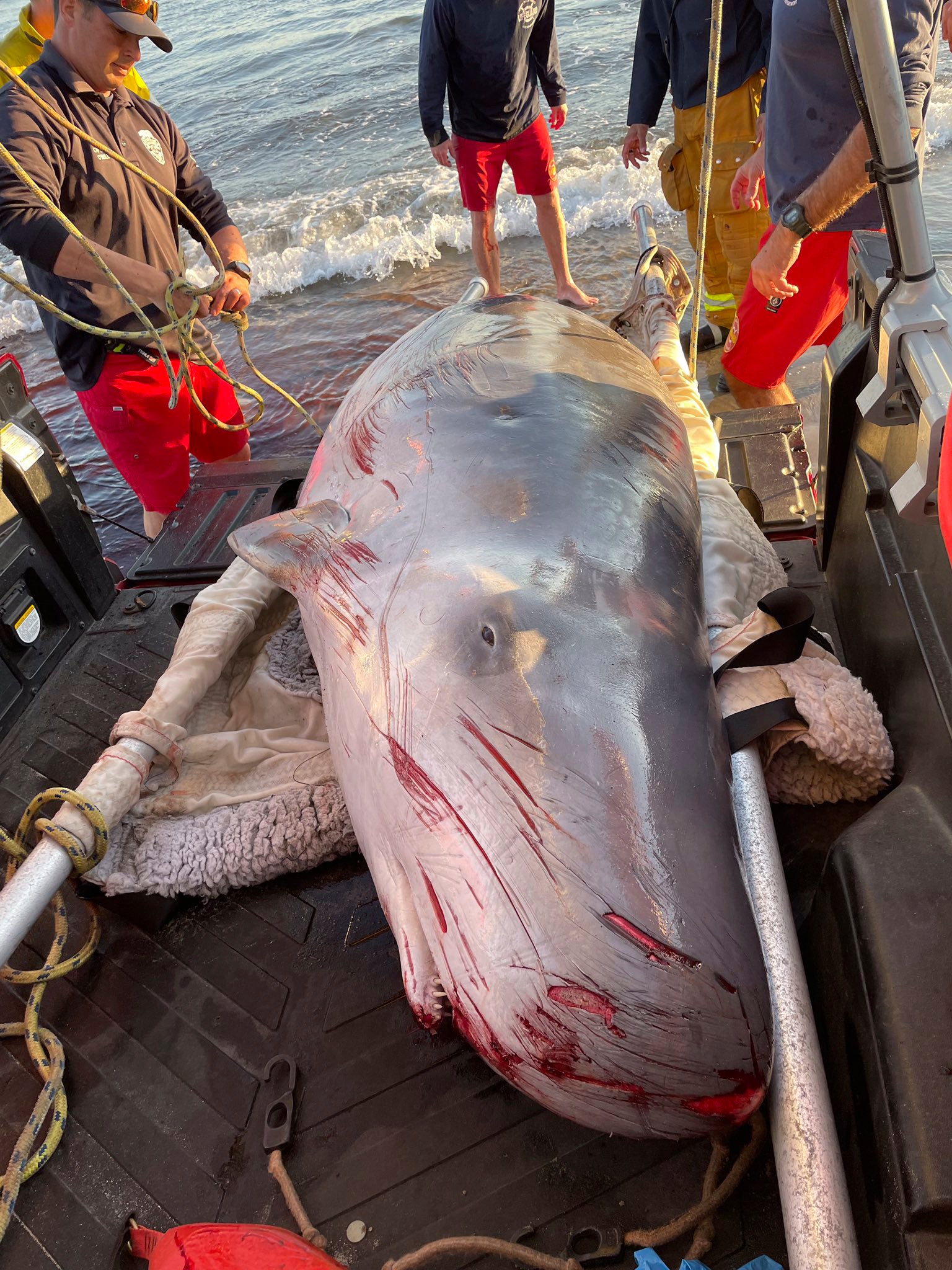Pygmy sperm whale euthanized after Malibu beach stranding
Officials say an injured pygmy sperm whale that was found stranded on a Southern California beach had to be euthanized

Your support helps us to tell the story
From reproductive rights to climate change to Big Tech, The Independent is on the ground when the story is developing. Whether it's investigating the financials of Elon Musk's pro-Trump PAC or producing our latest documentary, 'The A Word', which shines a light on the American women fighting for reproductive rights, we know how important it is to parse out the facts from the messaging.
At such a critical moment in US history, we need reporters on the ground. Your donation allows us to keep sending journalists to speak to both sides of the story.
The Independent is trusted by Americans across the entire political spectrum. And unlike many other quality news outlets, we choose not to lock Americans out of our reporting and analysis with paywalls. We believe quality journalism should be available to everyone, paid for by those who can afford it.
Your support makes all the difference.An injured pygmy sperm whale found on Malibu's Surfrider Beach had to be euthanized, a rescue organization said.
Lifeguards and county firefighters responded to the report of the whale stranding around 4:40 p.m. Sunday, lifeguards said in a social media post.
Photos showed the small mammal had bloody scratches. The whale was placed in a truck and taken to the California Wildlife Center rescue organization.
The organization said in a statement to KCBS-TV that the whale was in poor health, had many injuries from hitting rocks at low tide and was euthanized to prevent more suffering.
Pygmy sperm whales are up to 11.5 feet long (3.5 meters) and weigh up to 1,000 pounds (454 kilograms), according to the National Oceanic and Atmospheric Administration.